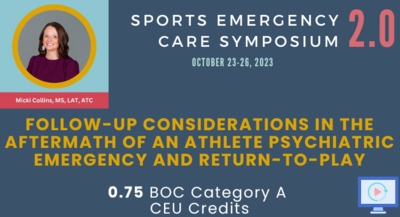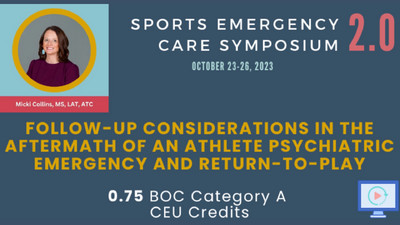AI Chat Bot
Follow-up Considerations In The Aftermath Of An Athlete Psychiatric Emergency and Return-To-Play › Learning Material
Presentation (Video)
Updated Jan 22, 2024
Copyright © 2025 Action Medicine Consultants, LLC
___MESSAGE___
___MESSAGE___


